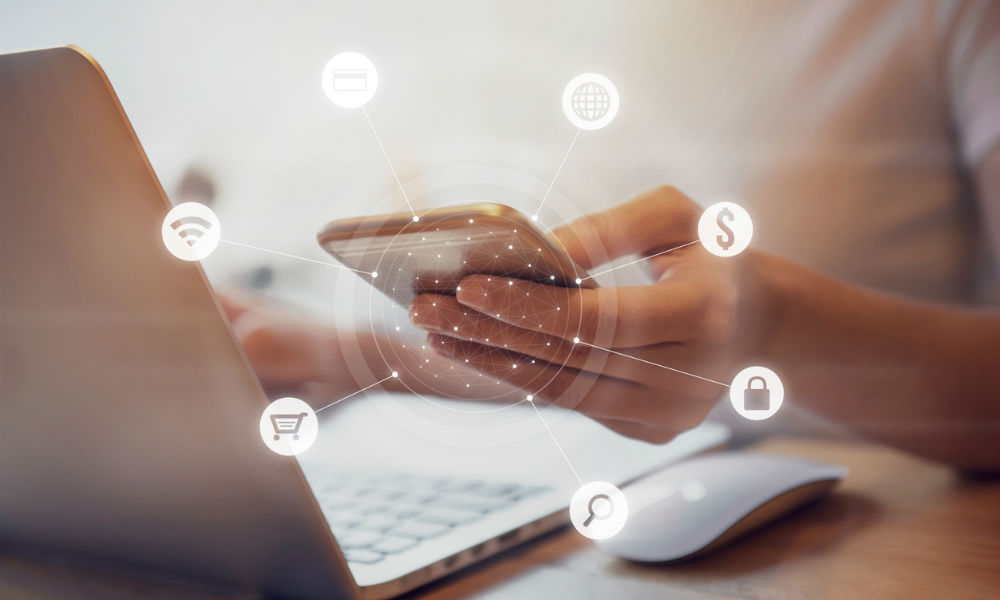The latest advancements in mobile technology led to the introduction of convenient services, such as mobile payment systems. Smartphones have gone beyond the call of duty, as businesses and banks are now leveraging the Internet of Things (IoT) to expand their reach and offer a fast and convenient service to consumers.
By 2020, mobile payment will be a standardized process. Based on the research undertaken by Visa, many people could be leaving their wallets behind and paying for almost every purchase using their mobile devices. Merchants and customers will feel more comfortable in transacting through smartphones, whether through NFC-enabled terminals and phones or via an app or a scanner at a store.
Currently, people are able to make mPayments through an app virtually or through a special and secure SIM card that allows them to make NFC payments. These specialized SIM cards are armed with the fastest and stable mobile internet to ensure a seamless connection with NFC-powered payment terminals. With their built-in ultrafast LTE data connection, O2 said that users can even save their data when they are out and about. With these advancements, it is expected that future technologies will improve mPayment processes by making them faster, more reliable, and will remedy any current security concerns.
And, it is expected that 2017 will be a significant year for mPayment solutions, which could possibly help the technology reach its maturity. There are many trends that will drive mPayment to succeed this year. Read on below to find out:
Mobile payment across all devices
To further encourage people to embrace mPayment technologies, mobile manufacturers are now working on making their own mobile payment solutions available across all mobile devices. These technologies will be rolled out across all handsets. Last year, it was reported that Samsung was developing their low- and mid-range smartphones which will be launched with their propriety Samsung Pay and fingerprint scanners for added security benefits.
Many other mobile manufacturers are poised to release similar technologies. This move will further strengthen the adoption of mPayment solutions, even in developing countries, where low- and mid-range budget handsets are more popular.
Bitcoin on mobile
Blockchain technologies are more popularly used via PCs. Although there are wallet apps that manage bitcoin, its user base continues to be low – but not for long.
Third-party app developers are now working on bringing Blockchain payments to mobile devices. The latest is Circle who worked with Apple on integrating their blockchain payment service to iMessage via the latest iOS 10 update. This will allow iOS users to send payments in dollars, euro, pound sterling and bitcoin through the text messaging platform. Aside from the iMessage payment system, the California-based tech giant also built their propriety Apple Pay into the iOS 10 for Mac.
As Blockchain technology joins the wide range of mobile payment systems, it will help bitcoin garner a larger user base. After a recent slump, bitcoin made a huge comeback earlier this year as it crossed the $1,000 mark for the first time since 2013.
Bluetooth is back
If you think Bluetooth technology is a thing of the past, think again. Bluetooth chip shipments are expected to double this year, driven by the demand for integrated parts in mobile devices.
We have to hand it to Apple for their recent movement to foster wireless technology by replacing the headphone jack with their all-new EarPods. This movement sets the stage for using Bluetooth in conjunction with mPayments. This technology offered a stable and secure connection between the accessory and the handset, which made “their current handset two times louder” than its predecessor.
Surpassing the initial challenges of the adoption process these past few years, Bluetooth is now at a mature point and ready for bigger consumer adoption in 2017.
mPayment solutions are set to make a huge impact in 2017. There will be a keen eye on the growing number of innovations in mobile payments as mobile tech manufacturers and banks are now embracing them to make the payment flow as simple as possible. The aforementioned trends will be the drivers in the success of mPayments, which leaves us to wonder whether we will at some point be left with a paperless society, due to the rate in which mobile devices are changing our everyday lives.

